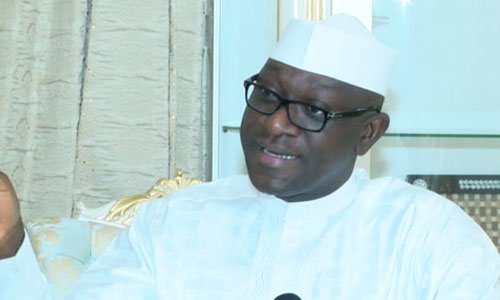LEGAL NEWS UPDATES 08/04/2022
Section 84(12) Of Electoral Act: NASS Engages Kayode Ajulo, Esq., To Challenge Controversial Provision

The National Assembly has begun moves to thwart the actions of some members of the federal executive who are bent on removing Section 84(12) from the Electoral Act 2022, Punch report.
Our correspondent on Thursday gathered that the nation’s apex legislature had started the process of appealing the judgment of a Federal High Court, Umuahia, Abia State, which removed Section 84(12) from the Electoral Act.
Section 84(12) of the Electoral Act bars all political appointees including ministers, commissioners and aides from contesting or voting in any party primary.
Some members of the executive, including the Minister of Justice and Attorney General of the Federation, Abubakar Malami, SAN, had opposed the section, saying it was undemocratic.
The President Muhammadu Buhari, a few months ago signed the electoral bill passed by the National Assembly into law with a caveat that Section 84(12) be deleted in order to deepen democracy in the country.
But the National Assembly in March threw out the President’s request and insisted that serving political appointees must resign before contesting elections.
Malami, who opposed the lawmakers’ decision, vowed that the Federal Government would explore other means including the court to ensure the provision that he claimed offended other sections of the Constitution was expunged from the amended Act.
On March 18, the FHC, Umahia ruled that the section was at variance with the constitution which provides that public officers contesting public office should only resign 30 days to an election. The court ordered the AGF to delete the section.
The National Assembly was, however, not joined in the suit.
Malami, who welcomed the judgment, promised to delete the section from the law in line with the judgment but the National Assembly rejected the judgment, vowing to appeal it.
A document sighted on Thursday showed that human rights lawyer, Mr Kayode Ajulo, had been hired by the National Assembly to take up the matter and had filed an application before Justice Evelyn Anyadike of the FHC Umuahia seeking leave to be joined in the suit.
It was also gathered that he had commenced the process of filing a notice of appeal. Attempts to speak with Ajulo on Thursday proved abortive.
According to the court process, the suit seeking to appeal the judgement was done in line with Section 243(a) of the constitution.
Section 243(a) reads in part, “By Section 222 of the Constitution of the Federal Republic of Nigeria, Cap. 62 of the Laws of the Federation of Nigeria, 1990, only a party to civil proceedings can appeal to the Court of Appeal without any inhibition on his capacity to do so.
“Any other person who has an interest in a case but is not a party to the case, cannot appeal in the proceedings until he obtains the leave of either the High Court from which the case is being appealed or the Court of Appeal to which the appeal is to be brought.”
Confirming the development, a ranking member of the National Assembly told The PUNCH that the process for appeal had begun, adding that it could not be done directly because the National Assembly was not a party to the suit.
“Leave has been sought at the trial court to appeal as an interested party since we are still within time,” he said.



